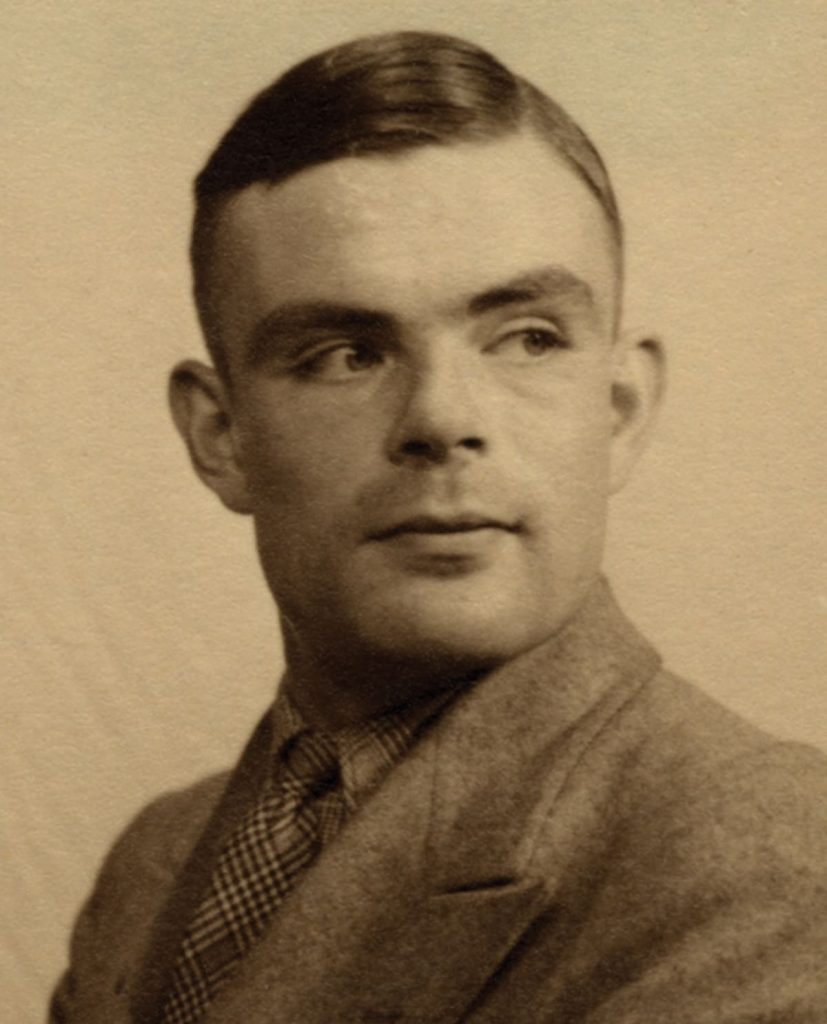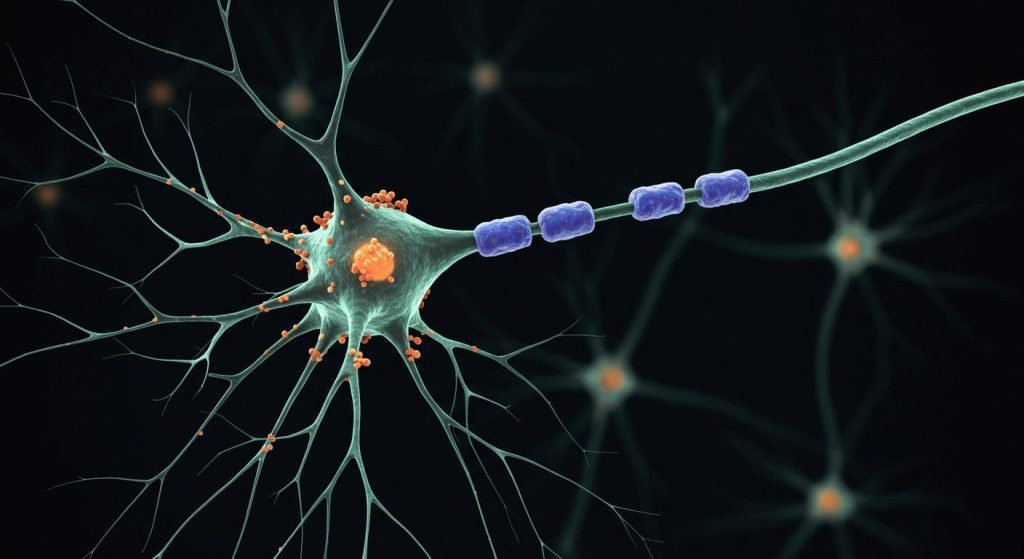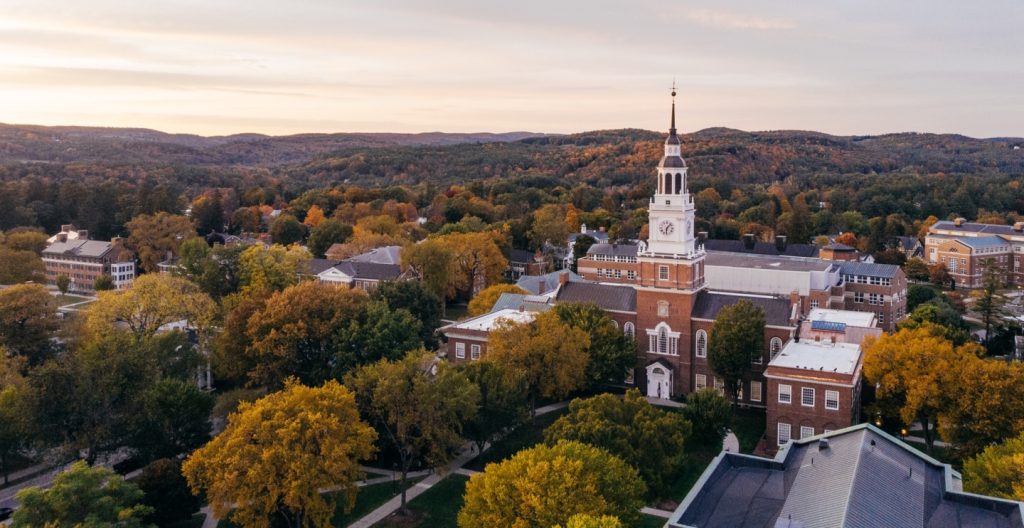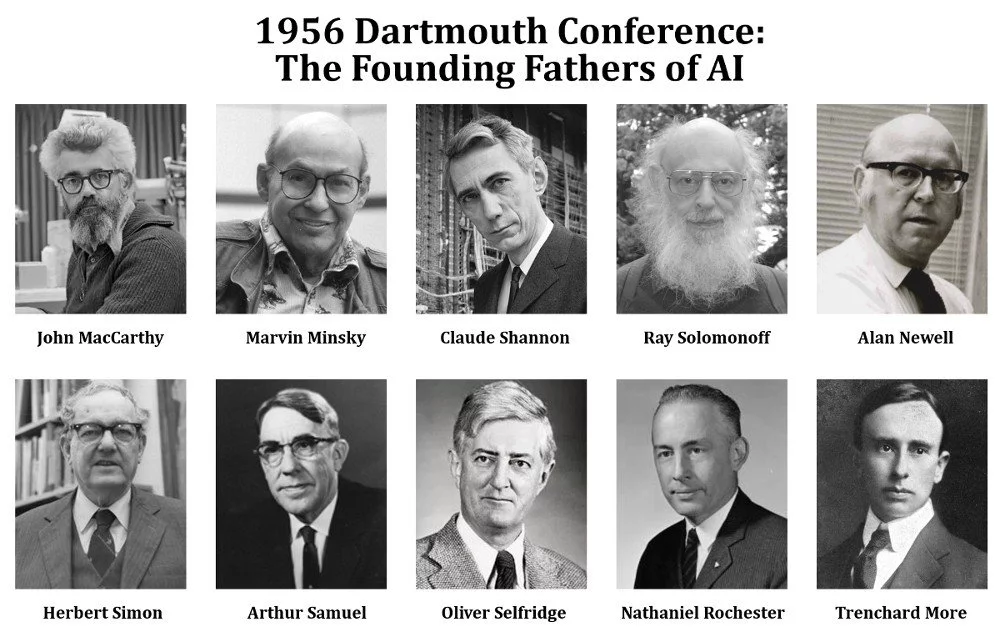Tracing AI’s Roots to the 1940s & 1950s
While Artificial Intelligence (AI) seems like a modern marvel, its foundational concepts were firmly established in the 1940s and 1950s. This pivotal era saw brilliant minds lay the theoretical and practical groundwork for what would become one of the most transformative technologies in human history.

Alan Turing inspired by the film The Imitation Game
Alan Turing’s Vision (1940s-1950) is often considered the “father of AI,” British mathematician Alan Turing’s work was instrumental. His 1950 paper, “Computing Machinery and Intelligence,” famously introduced the Turing Test, a criterion for assessing a machine’s ability to exhibit intelligent behavior indistinguishable from a human. Even before this, his work in cracking the Enigma code during WWII with early computing machines hinted at the power of “thinking machines.”

Photo Courtesy of Quantum Zeitgeist
Early Computing & Neural Networks (1940s) created the emergence of the first large-scale mechanical and digital computers in the 1940s provided the necessary hardware for AI’s conceptual development. In 1943, Warren McCulloch and Walter Pitts designed the first artificial neurons, a crucial step towards understanding how brains could be simulated computationally.

Dartmouth College Is Front and Center to the AI phenomenon
The Dartmouth Conference in 1956 was the landmark summer workshop at Dartmouth College, organized by John McCarthy, is widely recognized as the official birth of AI as a field of study. McCarthy himself coined the term “Artificial Intelligence” at this conference. Researchers like Marvin Minsky, Allen Newell, and Herbert Simon also participated, setting an ambitious agenda for the future of AI.

Following the Dartmouth Conference, the first successful AI programs began to emerge. Allen Newell and Herbert Simon developed the Logic Theorist in 1956, a program capable of proving mathematical theorems. Arthur Samuel’s checkers-playing program, which could learn and improve its play, further demonstrated the early potential for machine learning.
The intellectual curiosity and pioneering spirit of the 1940s and 1950s truly paved the way for the AI advancements we witness today. From theoretical concepts to the very first rudimentary programs, this period established the essential building blocks for artificial intelligence.
Viorica Bruni Content Creator Collective Audience Media
Must Read










